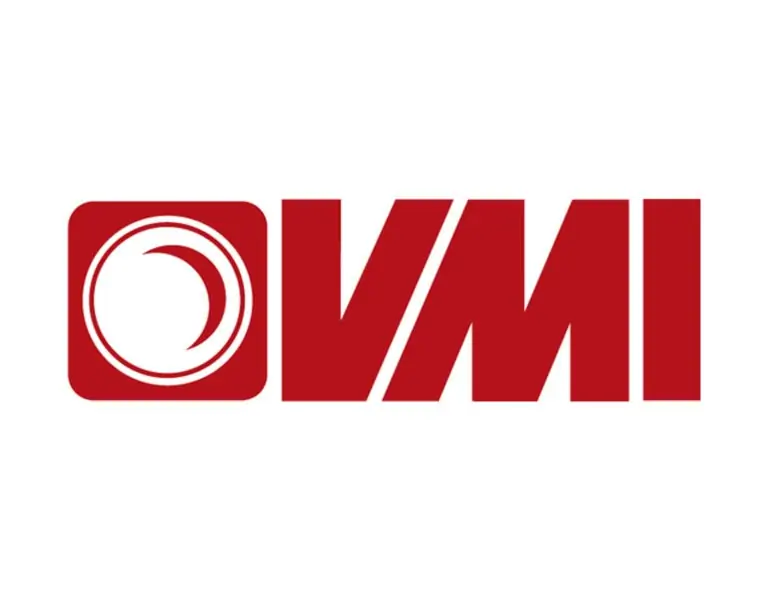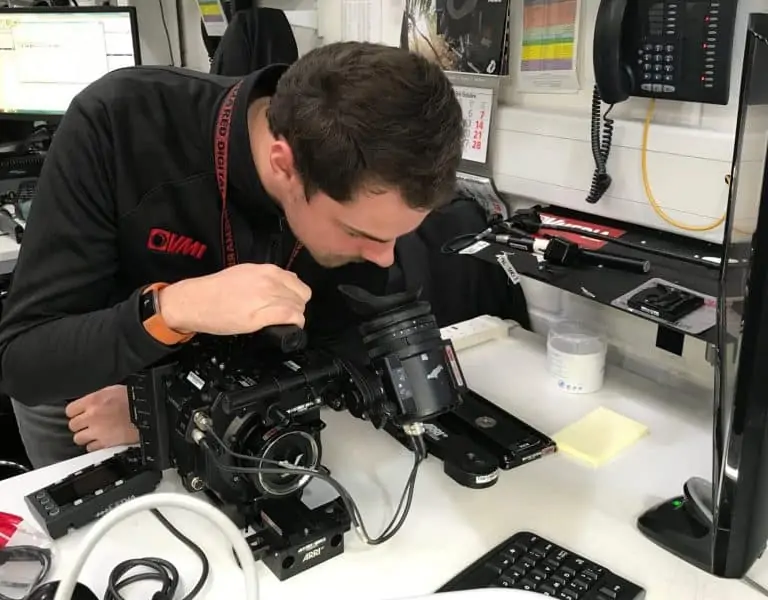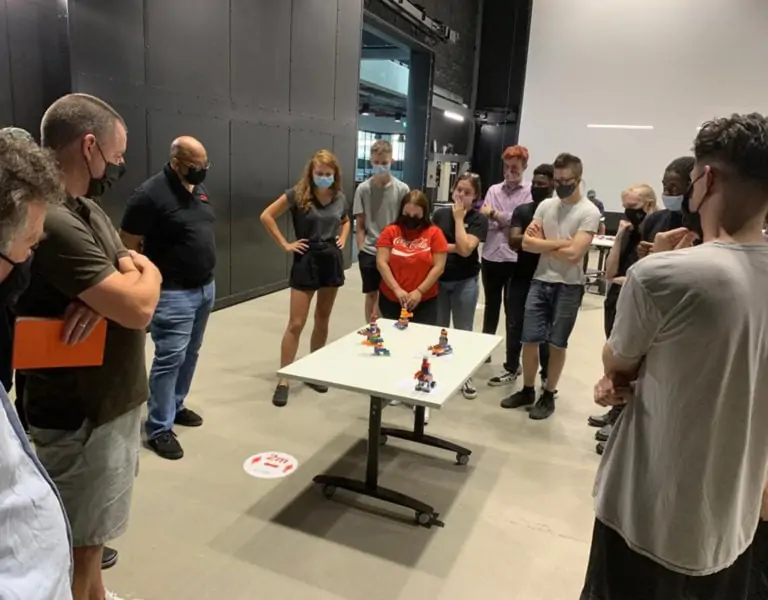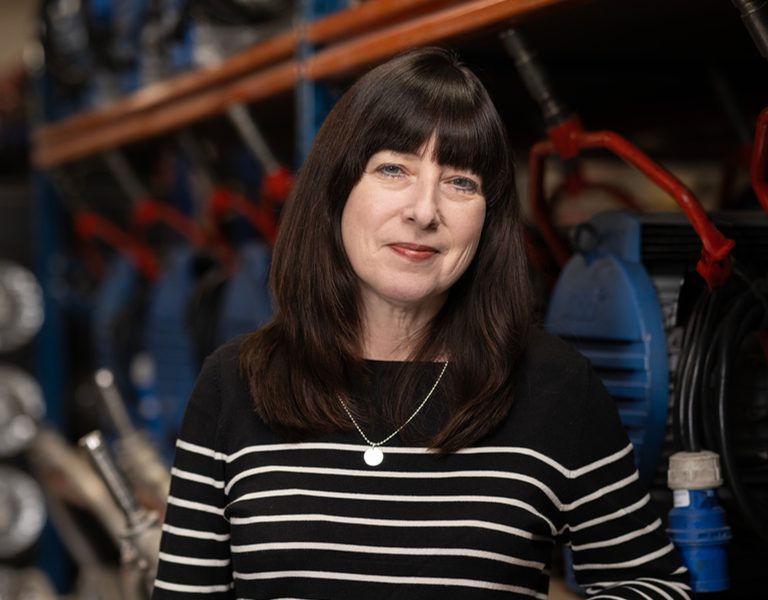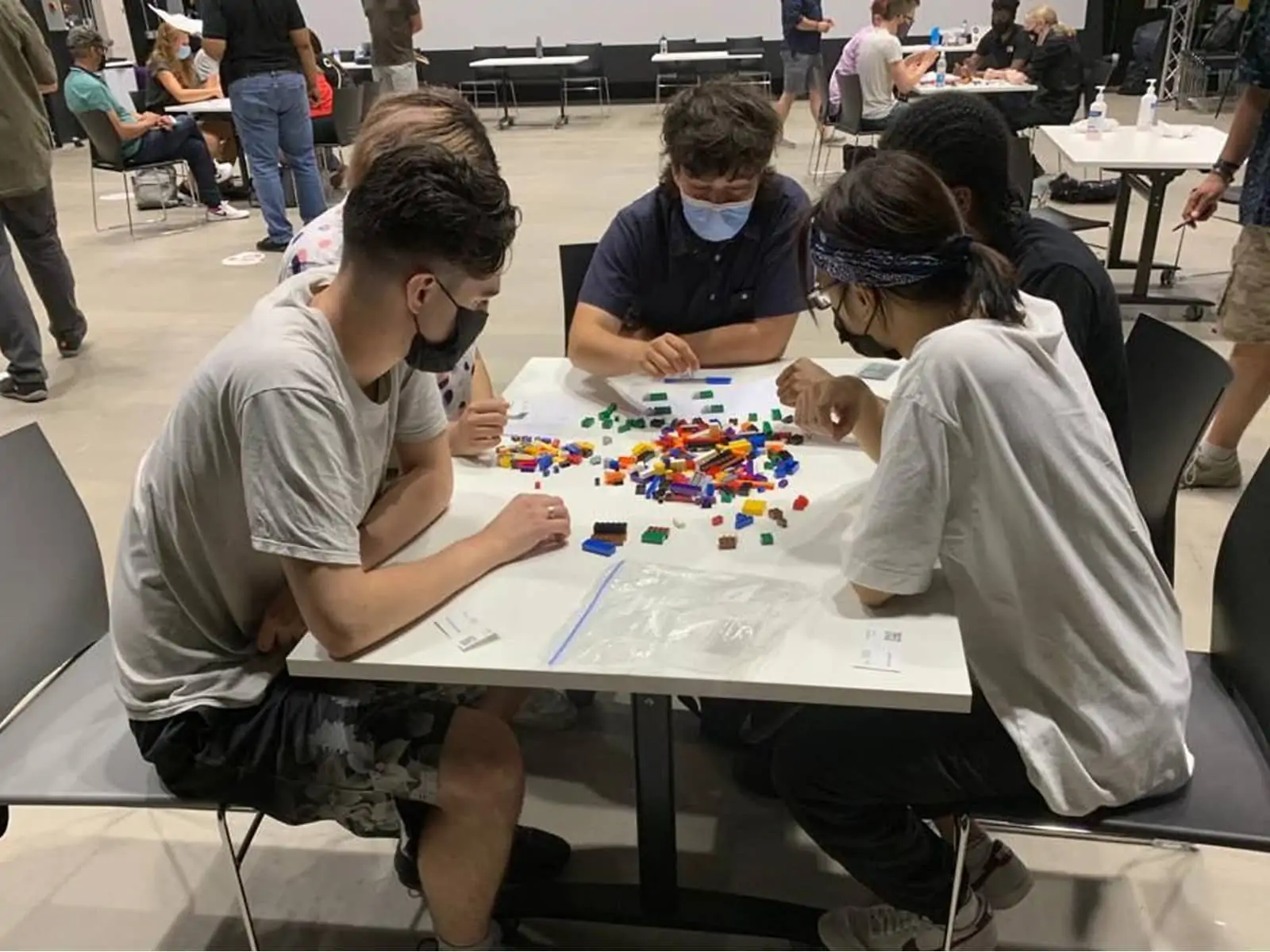
Barry Bassett, VMI’s managing director, released the following statement:
“It is hard today for new entrants to enter the television production industry, since all of the major broadcasters’ traditional training programmes have been disbanded which used to train youngsters joining their ranks and turn them into camera operators, editors and producers. Mindful of this, we started the ‘internship’ scheme more than 10 years ago, to take fresh graduates over a 6-month period and give them a grounding in camera tech, whilst working at the firm. This was launched at a time when many companies abused their position and did not pay them.
Contrary to this, we initially paid interns £50 per week and this rose to the current rate of £200 per week, although the scheme has been temporarily halted due to concerns of COVID transmission.
However, we were mindful that youngsters from underprivileged backgrounds might not be able to afford to go to university and thus compete with the other intern applicants, so we set about creating an apprenticeship standard which enabled us to employ school leavers (and older) and offer them an alternative entrance route to the industry. The scheme would see them initially employed as apprentices and formally train them to a syllabus which our industry had designed, at a training establishment of our choice and earning them a nationally recognised qualification.
This laudable project was taken on by me, as VMI’s Managing Director and I achieved this over 3 years from 2018-2021. The UK’s first cohort of Camera Technician Apprenticeships started in August 2021 and VMI today employs 3 apprentices from this first intake. In 2 years, these trainees will be fully trained and will have achieved a level 3 NVQ qualification and be employed at VMI earning at least the living wage.
It wasn’t that easy to achieve though and the process initially involved persuading the Institute of Apprenticeships that there was a skills need for this new standard; then persuading the industry body Skillset to support the scheme and pay for a consultant to help me as chair of the Trailblazer group, to create the standard; then encouraging 10 other rental companies (including ARRI and Panavision) to join the panel to help to design the standard; meet several times over 2 years to design the standard; meet again to create an agreed method of testing for the standard; find and encourage 3 Training Providers to quote for training the course; procure government funding; Setup a subcommittee to interview and select a Training Provider; select an assessment provider too; and then when it was finally approved and ready for launch, COVID hit…
So as the recovery commenced, persuading all rental companies to commit to taking apprentices with a 2-year commitment was very hard but we did eventually achieve this, and the first cohort has seen 9 apprentices working at several rental companies today and VMI’s 3 apprentices are doing extremely well. The London Screen Academy (LSA) became the training provider of choice and who is training our apprentices and the links established between the LSA and industry will endure for many years providing many useful and valuable opportunities for the training recruits. Furthermore, we fully expect that in 2022, the industry will have recognised the value of this new route and will commit to taking on more than 20 apprentices annually, making the entire plan worthwhile.
It is insightful to understand where this idea was hatched, since it came from a challenge to pay people higher salaries…
I had the idea back in 2017 that we should pay all staff at least the Living Wage, since this was deemed to be a fair salary that people would be able to comfortably live on. Camera technicians’ salaries haven’t traditionally been particularly generous, but we paid the going rate, though we found it difficult to retain our technicians for more than just a couple of years and sometimes for just a year. The reason for this is that university graduates who joined us as trainees, were always eager to join the freelance world to earn more money and considered their time working at a camera rental house to be simply an incubation period to launch their freelance careers. I was able to measure the technicians’ productivity as their experience developed and realised that by staying with us for a longer period than they currently did, that their increase in productivity would be more than offset by paying them higher salaries and this has since been confirmed to be true.
We had wanted to achieve Living Wage accreditation for some years but when we initially tried to implement this, the Living Wage Foundation imposed the rule that ALL trainees must be paid the Living Wage within 6 months and we felt that since it would take at least a year for them to attain a suitable level to justify this rate, that we couldn’t do this. As a result, we delayed committing to this for two years.
The only exception, they told me, was for trainees to be in a recognised training course, as only this would suitably justify them being paid a training wage, rather than the living wage and they were clear that our internal training would not qualify for this. Since no formal appropriate training courses existed for camera technicians, this was my motivation for creating one!
I explained my motivation and rationale to Mark Furssedonn, the Operation’s Director for Panavision, who was keen on the project and with whom I worked with on the ASPEC committee, an association representing camera rental companies. He resonated with my findings, since he confirmed that they too suffered from a rapid staff turnover of trainees, so between Mark and several others, we collectively worked to cultivate this project over the next few years until it was formally launched. I feel though that it is important to consider that it was our wish to pay our staff higher salaries that inspired me to set up the Camera Tech apprenticeship scheme in the first place.
Living Wage Accreditation has been very positive for VMI:
- Instead of it costing us money, the improvement in measurable productivity has meant that paying people higher salaries has resulted in still higher productivity, so this decision has actually enhanced profitability.
- Our staff turnover has fallen, so we no longer lose important skills from within the company
- This in turn helps us to provide a very high-quality service, which assists to build our brand.
- Since staff remain longer with the organisation, we are happy to spend resources in additional training for them.
- As a consequence of this positive feedback loop, our perception is that morale is higher than it would otherwise be.
The conclusion is very positive for us, and we now pay well in excess of the living wage to all but the most junior people and are proud to be a living wage accredited organisation.
Our profitability has improved and we would unconditionally recommend all firms to make this decision.”

